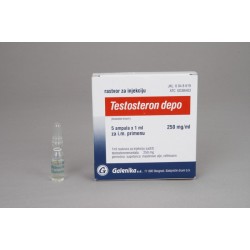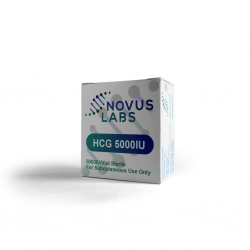The popular use of Human Chorionic Gonadotropin (HCG) has been widely adopted in medical health for patients, for some of its wide applications, such as fertility treatment and weight loss programs. HCG BPC 157 for Sale Guide in Europe This guide will help you understand where can you buy HCG in Europe, what are its uses, and how to ensure that you are buying authentic and healthy products.
What Is HCG and What It Can Be Used For
HCG, or Human Chorionic Gonadotropin, is a hormone that occurs naturally during pregnancy. It is a key player in sustaining pregnancy by maintaining the corpus luteum responsible for producing progesterone needed for fetal development. In addition to its natural presence, HCG is also engineered and used in various medical interventions and treatments:
Fertility Treatments: HCG shots are frequently used by men and women to treat infertility. It promotes ovulation in women, increases testosterone levels and supports sperm production in men.
Dietary Protocols: HCG has been used in special weight loss programs that claim they can help with fat loss when combined with a very low calorie diet.
Performance Improvement: HCG is occasionally used by athletes and bodybuilders to restore hormonal balance and prevent muscle loss during rigorous exercise.
Human chorionic gonadotropin (HCG): (Medical Conditions): HCG may be prescribed for conditions such as cryptorchidism (undescended testicles in young boys) and some types of hormonal imbalances.
Important Words to Understand When Purchasing HCG
Pregnyl 5000 IU: An HCG brand commonly used for fertility treatments. Pregnyl is widely found and easily available in some countries like UK and in Europe where you can avail required quantity with the sex pilleshop, however it is important to source it from authorized sellers to ensure authenticity.
Other name HCG; the hormonal nature of it.
Then we have the pharmacists Gonadotropin (broader category including HCG and similar hormones that stimulate gonadal activity).
Where to Buy HCG in Europe
HCG or Human Chorionic Gonadotropin is mainly known for its uses in weight loss treatment. Here are the primary avenues:
Licensed Pharmacies:
The only safe and reliable source of HCG is at pharmacies. Most European countries require a prescription from an authorized healthcare practitioner in order to purchase HCG legally.
There are certain pharmacies that provide online service, where HCG can be ordered online if a valid prescription is sent in.
Online Retailers:
HCG is advertised for sale on many online platforms, such as Pregnyl 5000 IU, and branded or generic forms.
Only buy from a well-known retail that is operating within the law. Check for reviews, certifications, and safe payment options.
Fertility Clinics:
If you’re seeking fertility treatments, your clinic most likely will supply — or at least recommend — a trusted source for HCG.
Specialist Health Stores:
Health and wellness stores might stock HCG offerings, but they tend to stock non-prescription versions and aren’t guaranteed to provide the same quality of ingredients found in prescription HCG.
Tips for Buying HCG Safely
Check the Seller’s Credentials:
Verify that the retailer is licensed to sell medications.
Verify their registration with applicable pharmaceutical licensing authorities.
Know the Product Labeling:
The product should be labelled “Human Chorionic Gonadotropin” along with dosage information, manufacturer details, and expiry dates.
Seek Professional Guidance:
Consult a physician to find the appropriate dosage and method of administration suitable for you.
Talk about potential side effects and interactions with other medicines.
Be Wary of Counterfeits:
Needless to say this is an issue with counterfeit HCG products. They can still be harmful or ineffective, however.
Be wary of unverified sources or offers that appear too good to be true.
Pregnyl 5000 IU Buy in the UK
Pregnyl 5000 IU is high on demand HCG in UK, especially for fertility treatment. To buy Pregnyl 5000 IU:
Doctor's Prescription: You cannot buy Pregnyl over-the-counter from the pharmacy without a doctors prescription.
Typical Online Pharmacies: This type of online pharmacy is UK based and requires you to upload a valid prescription if you want to buy Pregnyl.
Reproductive Clinics: If you are under medical supervision for reproductive health, these clinics may have Pregnyl on hand or know where to find reputable suppliers.
Price Check: Price may vary by pharmacy. Cost should be a consideration but avoid unregistered sellers even if they are cheaper.
Global Market for Human Chorionic Gonadotropin
HCG is marketed worldwide under a variety of brand names and formulations. (Note: availability may vary by local laws and market dynamics:
HCG-sales in Europe is tightly regulated. It is only sold with a prescription in most countries. Its distribution is handled by regulatory agencies such as the European Medicines Agency (EMA).
United States — HCG is a prescription drug. It’s also regulated by the FDA for use in weight loss protocols.
Asia: Less strict rules exist in some nations, yet this results in greater susceptibility to counterfeit goods.
Popular HCG Brands in Europe
Pregnyl: Commonly used in fertility therapy. Produced by companies, such as Organon, that manufacture pharmaceuticals.
Ovidrel: Recombinant version of HCG; trigger for ovulation.
Novarel: A popular brand used for the same goal.
Online Safety: Staying Away From Scams And Fake HCG
HCG Online: Convenient, but Risky Buying online is easy. Follow these precautions:
Research the Platform:
Read some customer reviews and ratings.
Check the payment methods: A reputable website will offer secure payment options.
Avoid Peer-to-Peer Sales:
Social media and any version of the comment box — unregulated forums — often become dumping grounds for fake or unsafe products.
Request Documentation:
Request certificates of authenticity or regulatory approval from the seller.
Everything You Need to Know About HCG for Weight Loss
HCG has been marketed (albeit poorly) for weight loss, but any application in this regard must be approached with extreme caution:
Seek Medical Guidance: hCG for weight loss is prescribed only under medical supervision.
Weight Loss Protocol: Most low-calorie diets are believed to be unhealthy.
Side Effects : Headaches, fatigue and hormonal imbalances.
Summary and Buying Guide
HCG—A SAFE & LEGAL RELEVANT FERTILITY STRUGGLING AGENT IN EUROPE. If you are looking for Pregnyl 5000 IU for its uses in fertility treatment or for other HCG uses, just do the following:
Talk to a healthcare provider to see if HCG is right for you.
Get it only from pharmacies that are licensed or reputable online merchants.
Double-check the authenticity of the product and comply with local laws.
Reduce the risk of counterfeit products by examining seller, avoiding too good deal.
When you follow these precautions, you can use HCG safely and efficiently for your medical or health needs.











